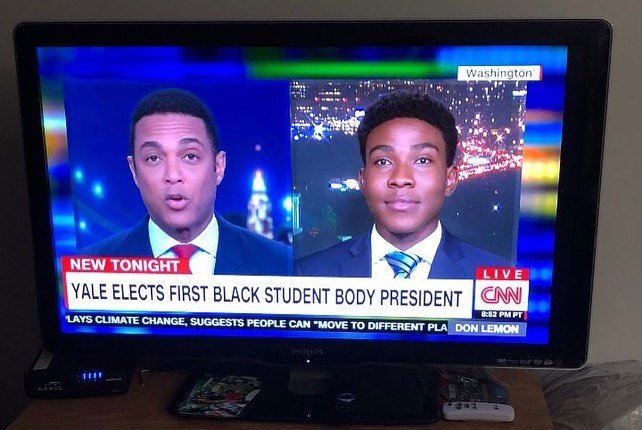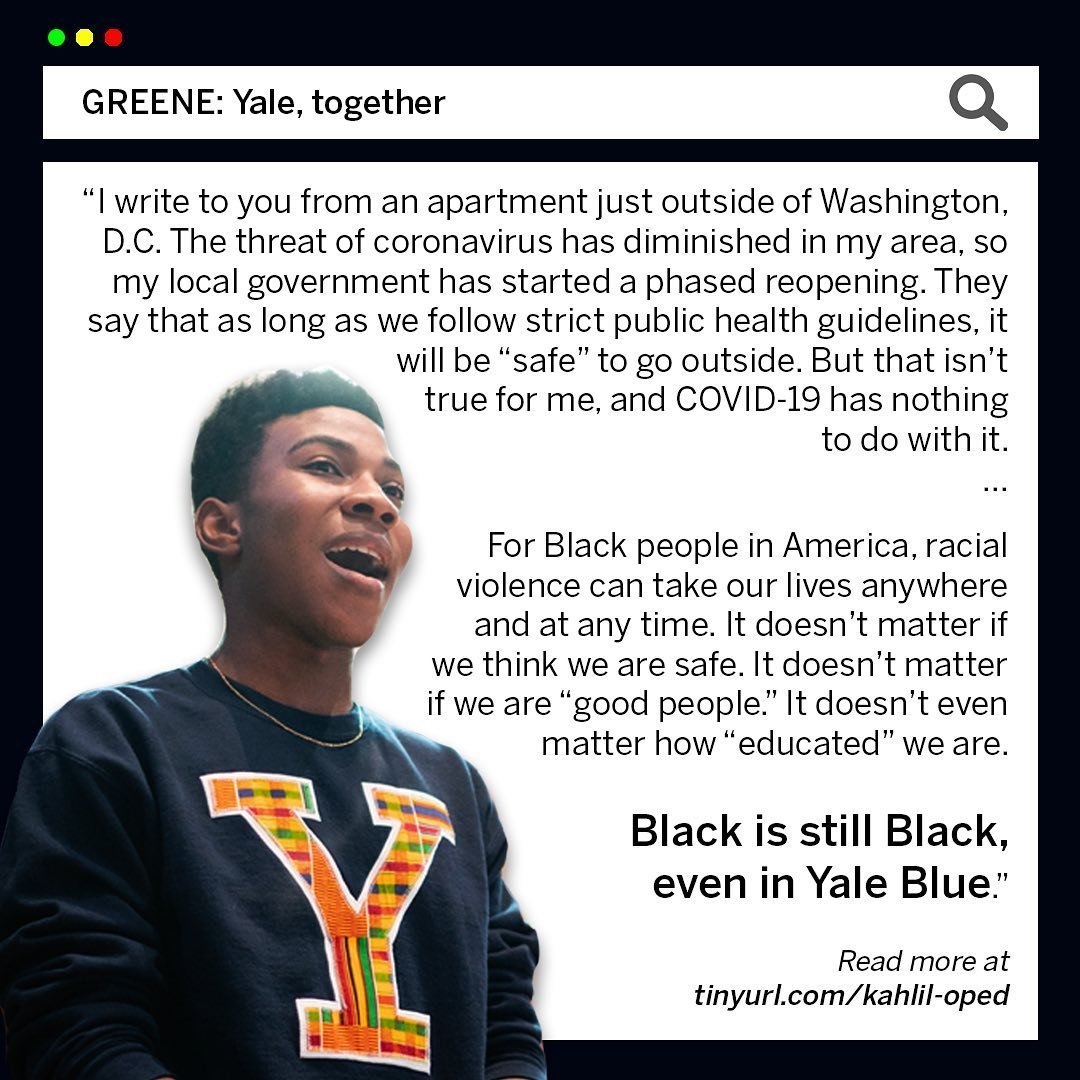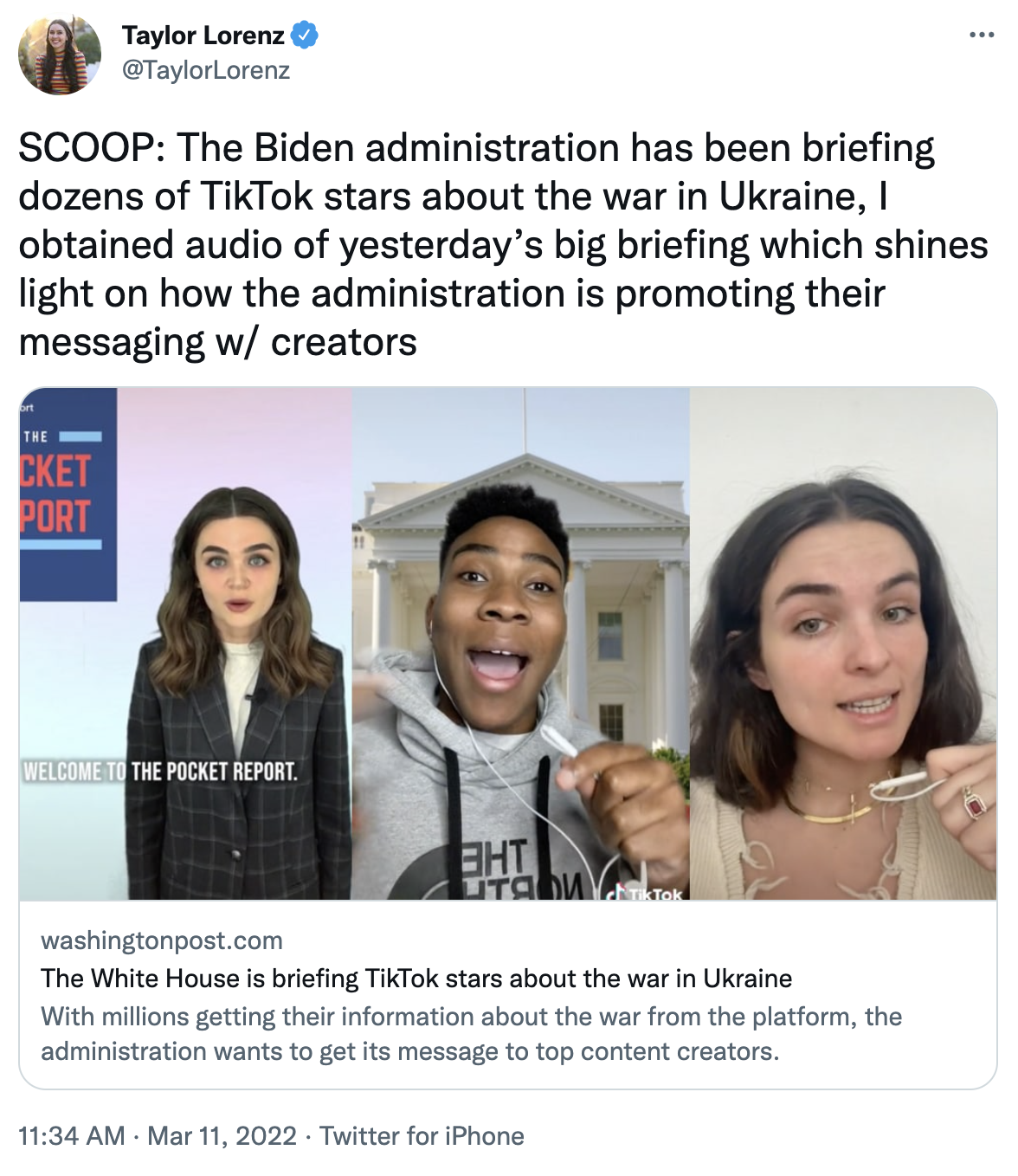
About
I am best known in three main areas …
Academia
Yale’s first Black student body president
Social Media
“The Gen Z Historian” on TikTok and Instagram
Business
Media Entrepreneur and Storytelling Specialist
I am the combination of these experiences and they all inform who I am and who I will be!
Short Biography
Kahlil Greene, also known as the “Gen Z Historian”, is a 2x Emmy-nominated, Forbes 30 U 30 Honored, Peabody Award-winning, and New York Times, WSJ, and Variety Magazine recognized digital educator with nearly 1 million followers and 50 million views across his TikTok, Instagram, and Substack profiles. He has authored op-eds about Gen Z and social impact in the Washington Post, LA Times, and Harvard Business Review. Kahlil also graduated from Yale with a degree in History and served as the college’s first-ever Black student body president. He is now a full-time, self-employed speaker, influencer, and educator and is known for his newsletter, "History Can’t Hide", which dives into stories of American politics and culture. He was a correspondent on Nickelodeon’s revival of the critically acclaimed Nick News series, and produced a historical docuseries on National Geographic in 2024. In 2025, TIME Magazine named Kahlil one of the 100 most important people on the internet. Kahlil’s main goal is to share knowledge about history, culture, and politics to make young people more informed about the world around them.
Full Biography
(This full bio is an 5 min read, but its definitely worth it!)
My name is Kahlil (Kuh-lil) Greene, and I’m from Germantown, Maryland—which has been ranked as the most ethnically diverse city in America.
But while having such a diverse population overall, my home county was marred by intense segregation. Growing up, I witnessed the differences spurred by systemic inequity: I attended a Title 1 elementary School and my majority Black and Hispanic public middle school was nicknamed the “Prison on the Hill” because of crumbling facilities and poor educational quality.
Throughout my childhood, I found support systems in organizations like the Boys & Girls Clubs of Greater Washington, for which I am now a distinguished alumnus. And at the end of middle school, I applied to and was accepted into Poolesville High School’s Science, Technology, and Mathematics magnet program.
Poolesville was on the richer, much-less diverse side of the county. In fact, the town had a violent history of racism and anti-blackness. By the time I graduated, I was the only Black student out of 240 in my magnet program. At the same time, the high school was ranked the #1 high school in Maryland year after year. The county inequitably poured resources into Poolesville’s curriculum and facilities because it was deemed an “excellent school”.
White supremacists boycott Poolesville school integration: 1956
The stark contrast between Poolesville and my elementary and middle schools ignited my lifelong passion to advocate for educational and racial equity.
Fast-forward, this passion ultimately led me to attending Yale University.
At Yale, I was indecisive on my major, but assured that I wanted to make an impact outside of the classroom. During my first few years at Yale, I watched successful student advocacy campaigns to rename a building originally honoring an anti-abolitionist, increase funding for Yale’s Ethnic Studies department, and raise awareness around Yale’s harmful investments.
During this time, I was a part of the Yale College Council (our school’s student government), where I thought I would be able to assist in these campaigns. Sadly, the YCC was wholly absent from aiding the work of student activists. Even worse, when I was a sophomore, the YCC was outed for embezzling other students’ tuition money to buy themselves designer clothing.
After this despicable failure, I applied to become the YCC’s Finance Director. Upon being appointed, I built an entirely new financial accountability infrastructure for the organization and directed our funds toward meaningful campus projects. This includes, but was not limited to, providing free menstrual products to all students, setting up a Middle Eastern North African cultural space on campus, and providing programming for students to support local small businesses.
At the end of my time in that role, I decided to contine my impact by running for student body president.
During my campaign, I pledged to be direct in critiques of Yale’s administration and actively supportive of student-led movements and protests (which became a hallmark of my presidency). The campaign was uncontested, in part due to my long list of accomplishments in the previous year, but the work started immediately. Just four days after my election, a Yale Police Department officer shot at an unnarmed Black woman and her husband after misidentifying them as robbery suspects. This ignited a weekend of protests, and I helped to organize the one on Yale’s campus.
In the summer after my election, my story went viral and I was featured on CNN, Essence Magazine, and (for those who know) The Shade Room. In one of my interviews, I shared a quote that captures one of my central beliefs: “You don’t necessarily grow up thinking you’re going to be the first person to do anything in this world, but if you work hard and you dream big, it can and will happen.”
I never thought it would be easy to be the student body president of such an old, elite, and prestigious university, especially with all of the media attention and the hefty promises I made to unite student government and student activism. But I never could have foreseen the difficulties of presiding during the onset of the COVID pandemic in 2020, when students were banned from returning to campus after Spring Break, essentially leaving ~6000 students stranded at home without their belongings.
As a part of the efforts to protect student well-being and educational equity (seeing as some students were living in mansions while other were essentially homeless), I co-led an effort to have Yale remove A-F grading for the first time in its history. Essential to the success of this #NoFailYale movement was a speech I gave to every single Yale College professor to sway their policy vote.
When we made it past the initial difficulties of the pandemic, the world was rocked once again by tragedy. After the murder of George Floyd, I made a declaration to the rest of the members of the YCC that we would not put out a statement until we took measurable action against the injustice of anti-Black police violence. I personally came up with the idea for the Yale Together movement, where we would ask student groups and alumni to donate their funds to racial justice organizations in New Haven and Minneapolis. To promote this campaign, I published my first-ever op-ed in the Yale Daily News. In one week, we raised $57,000.
My term ended in the Fall of 2021 after being extended due to the postponement of Spring elections (interestingly enough this also made me the longest serving single-term student body president at Yale). Even though I was no longer in that role, I still had a strong desire to advocate on behalf of Yale. Soon enough, an opportunity presented itself: Trump’s DOJ had sued Yale for its race-conscious admissions and affirmative action policy. The same night this happened, I penned an op-ed in my bedroom and submitted it to the Washington Post. It was published just days later.
While I loved writing, I found that most people in my generation were getting their information from other platforms, namely the new digital sensation TikTok. In the new year, I decided to try out sharing one of my arguments on the platform. On MLK Day, I posted my first-ever TikTok about MLK’s whitewashed legacy. It received over a million views in one day!
From there, I knew I could educate and advocate on hundreds of other issues and capture people’s attention while doing so. I started two well-received series: “Hidden History”—which explored the crazy, creepy, and/or covered up parts of American History and “How Everything on This App Originated with Black people”—which sought to explain how many of the cultural productions on TikTok came from the Black community. In addition to these series, I made other videos commenting on history, culture, and politics. After only a few months of creating content, a New York Times reporter discovered my work and gave me an independent feature.
While at Yale, I also served as a Kerry Fellow, assisting the former Secretary of State on an array of projects, a member of the prestigious Brady-Johnson Program in Grand Strategy, and a public speaking tutor. I graduated in December of 2021 with a Bachelor of Arts in History (on the Social Change and Social Movements pathway).
From the success of my social media endeavors, I was able to turn down my Corporate America offer and support myself through (1) content creation and (2) public speaking. I share insights from my experiences with organizations looking to better understand the perspectives of Gen Z’ers nationwide.
At the same time, I still retain my passion for social media content creation. I genuinely believe the work I am doing on Instagram and TikTok has far-reaching impact: after all, in early 2022, the White House invited me to a private briefing about the war in Ukraine to combat misinformation online.
In the future, I hope to continue my life passion by amplifying and diversifying my modes of advocacy and education work: I want to grow on social media but I also want to write a book, start a podcast, and maybe even have a TV Show!
I am very thankful to everyone who has helped me get this far and for everyone who will help me in the future. This is only the beginning of my journey!
(Last Updated Early 2022)












